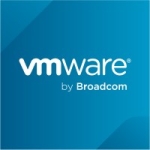Apache Hadoop's real-time data processing is weak and is not enough to satisfy our customers, so we may have to pick other products. We are continuously researching other solutions and other vendors.
Another weak point of this solution, technically speaking, is that it's very difficult to run and difficult to smoothly implement. Preparation and integration are important.
The integration of this solution with other data-related products and solutions, and having other functions, e.g. API connectivity, are what I want to see in the next release.
We've started using Apache Hadoop since 2011.
We selected Apache Hadoop because it is not dependent on third-party vendors. Previously, our main business unit was related to big vendors like IBM, Oracle, and EMC, etc. We wanted to have a competitive advantage in technology, so we selected the Apache project and used Apache open source.
The solution was implemented through a local vendor team here in Korea.
We evaluated IBM, Oracle, and EMC solutions.
My position in the company falls under the research and development of new technologies and solutions. I investigate, research, download, and read information and reports as part of my job.
Our company has a big data business division, and we propose, develop, and implement things which are related to big data projects. We are using Cloud Hadoop open source versions, distributed versions, and commercial Hadoop distributed versions. We propose all these versions to our customers from any industry.
Our focus is on the public sector. Big data is our strong point in Korea. Our company is the leader in big data technology, including infrastructure and visualization. This is a solution we provide to our customers. We are also in partnership with IBM. Our main focus is on Apache Hadoop.
We provide Apache Hadoop to our customers. I work for a systems integrator and technical consulting company.
Overall, our satisfaction with this solution is so-so. We continuously investigate new technologies and other solutions.
The Hadoop open source version was implemented in 95% of our company's customer base. Our remaining customers had the local vendor's Hadoop platform package implemented for them.
Our company is in the big data business. Before the big data business back in 1976, we implemented BI (business intelligence), DW (data warehouse), EIS, and DSS (decision support system), so we are in partnership with IBM.
I don't have advice for people looking into implementing this solution because I'm not in the business unit. I'm in the research field. My role is to plan new technology and provide consultation to our customers for big data projects in the early stages.
My rating for Apache Hadoop from a technical standpoint is eight out of ten.

















